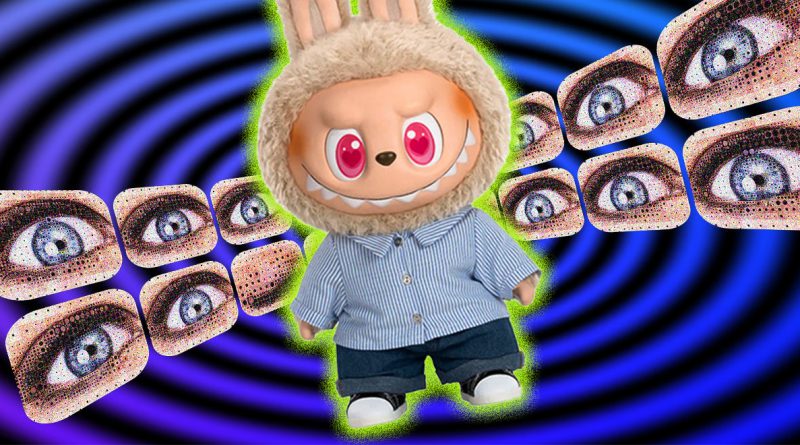Demons in Disguise? Labubu Dolls Stir Controversy
Dubai – A peculiar, goblin-faced plush toy named Labubu has taken the world by storm, becoming the latest global obsession in 2025. These quirky, sharp-toothed dolls, created by Hong Kong artist Kasing Lung and sold by Chinese toymaker Pop Mart, have skyrocketed to fame, adorning the handbags of celebrities like Rihanna, Kim Kardashian, BLACKPINK’s Lisa, and David Beckham.
From Shanghai to London, and now making inroads in India, the Middle East, and beyond, Labubu dolls have sparked frenzied queues, chaotic crowd surges, and a booming resale market where prices soar from $20-$30 retail to hundreds, even thousands, of dollars. A life-sized Labubu recently fetched over $170,000 at auction in Beijing, underscoring the mania surrounding these collectibles.
The dolls’ appeal lies in their mischievous charm and the thrill of “blind boxes,” where buyers don’t know which design they’ll get until opening, fueling scarcity-driven excitement. Social media platforms like TikTok and Instagram have amplified the trend, with influencers and Gen Z collectors showcasing their Labubu hauls.
In India, collectors proudly display their shelves, with prices ranging from ₹1,800 to ₹7,000 through middlemen. The craze has even reached the UAE, where fans scour Pop Mart’s online TikTok Shop restocks. Celebrity endorsements, particularly BLACKPINK’s Lisa’s Instagram posts, have catapulted Labubu into a global fashion statement, blending nostalgia, irony, and exclusivity.
However, beneath the hype lies a darker narrative, as warned by social media investigator Mark Hanalla, whose controversial analyses have raised alarms about the dolls’ spiritual implications.
Mark Hanalla, known online as “You Won’t Believe Me Official,” is a content creator who exposes what he calls the “dark side” of the entertainment industry, focusing on spiritual and moral concerns. With a significant following on Instagram and TikTok, Hanalla has recently turned his attention to the Labubu craze, cautioning that these dolls may carry “serious demonic energy.”
In a viral video, he points to their alleged inspiration from Nordic mythology, which some online voices compare to Pazuzu, a Mesopotamian demon associated with chaos and misfortune.
Hanalla highlights disturbing fan experiences shared on social media, including feelings of being watched, unexplained scratches, terrifying nightmares, and even a child claiming a doll’s eye color changed. While acknowledging skepticism about physical claims, Hanalla warns that inviting such objects into homes could “mess with you spiritually,” potentially opening doors to negative energies.
The controversy has been amplified by incidents like Katy Perry rejecting a Labubu doll offered by a fan at a concert, knocking it away in a moment that went viral. Hanalla also references a resurfaced Simpsons episode featuring a Pazuzu-like doll that brings chaos, fueling conspiracy theories about the toy’s origins.
As the Labubu trend grows, Hanalla urges caution, particularly in regions like the Middle East, where spiritual sensitivities run high. While the dolls’ cute-creepy aesthetic captivates collectors, his warnings resonate with those wary of their deeper implications, casting a shadow over this global phenomenon.



